Sociology: Developing Cultural Competence Assignment - Semester 1
VerifiedAdded on 2022/08/12
|5
|872
|18
Essay
AI Summary
This sociology assignment explores the concept of developing cultural competence through a student's personal experiences and case studies. The assignment begins by examining the student's microsystem, mesosystem, exosystem, and macrosystem, identifying the key influences and factors that have shaped their cultural understanding. The student then delves into a case study of Turkish culture, highlighting its flexibility, diversity, and the blend of traditional and modern values. The assignment also addresses the impact of colonialism, specifically focusing on the Australian Aboriginal experience, and the devastating consequences of cultural imposition and loss of indigenous rights. The student references relevant academic sources to support their analysis, providing a comprehensive overview of cultural competence and its complexities.
1 out of 5
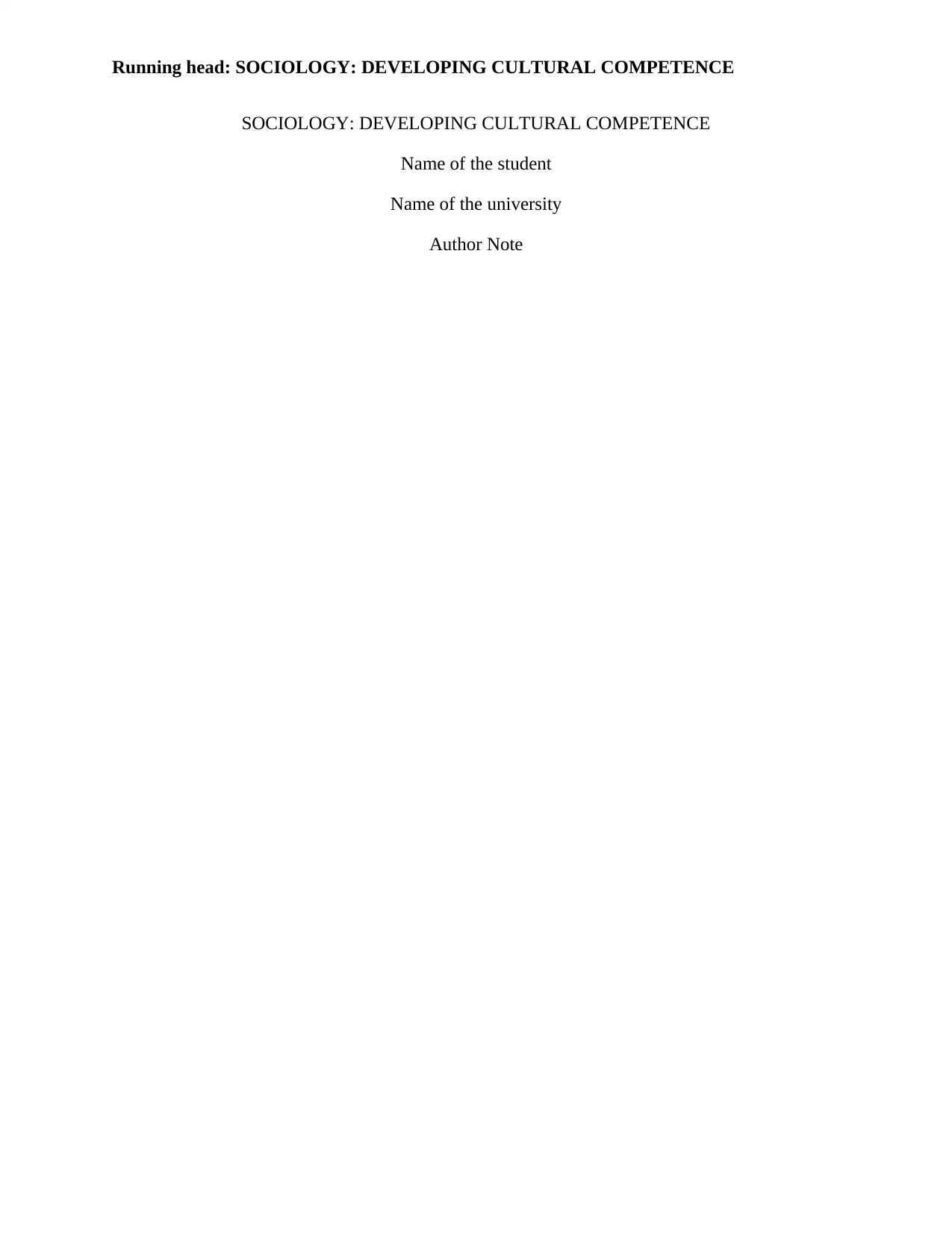
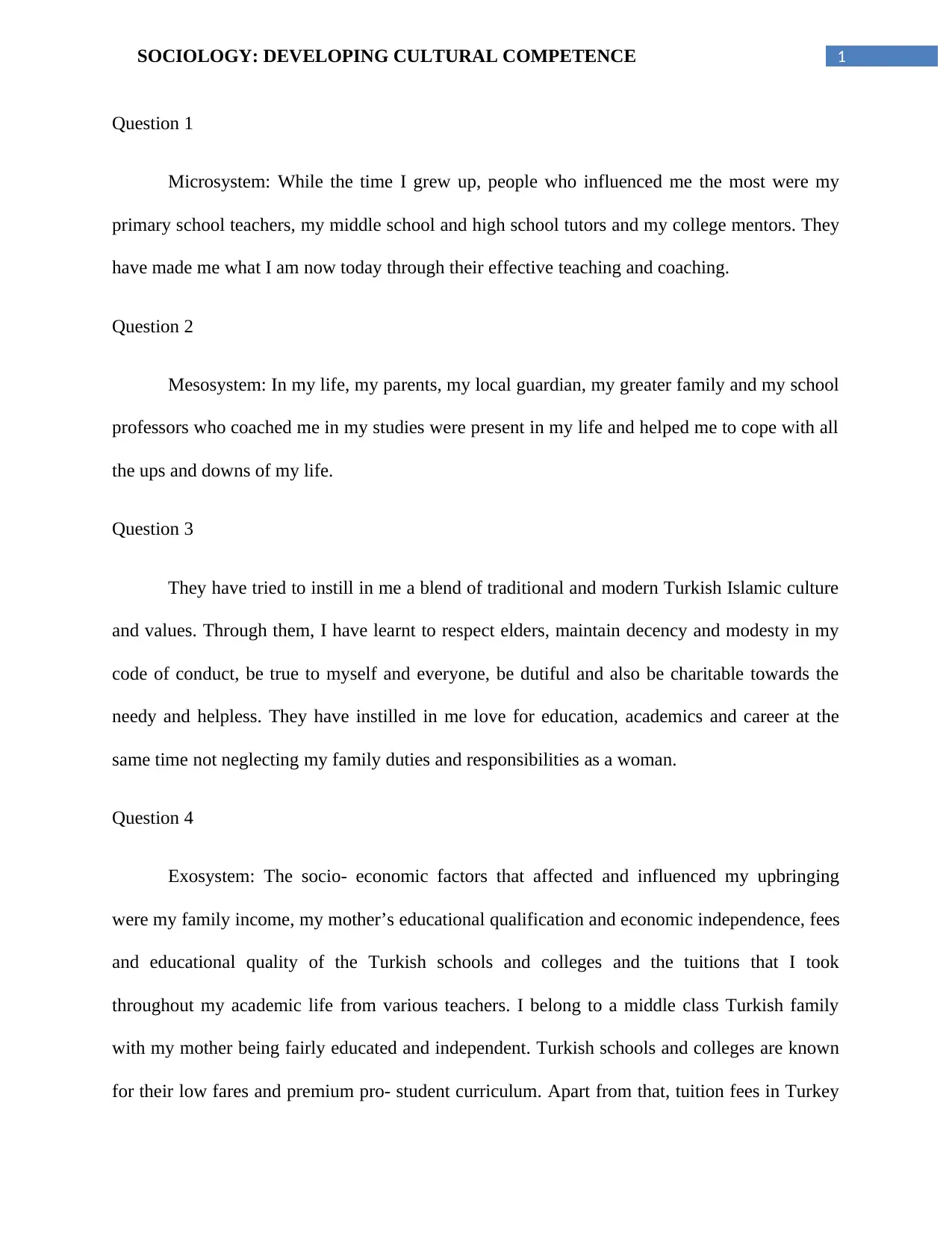
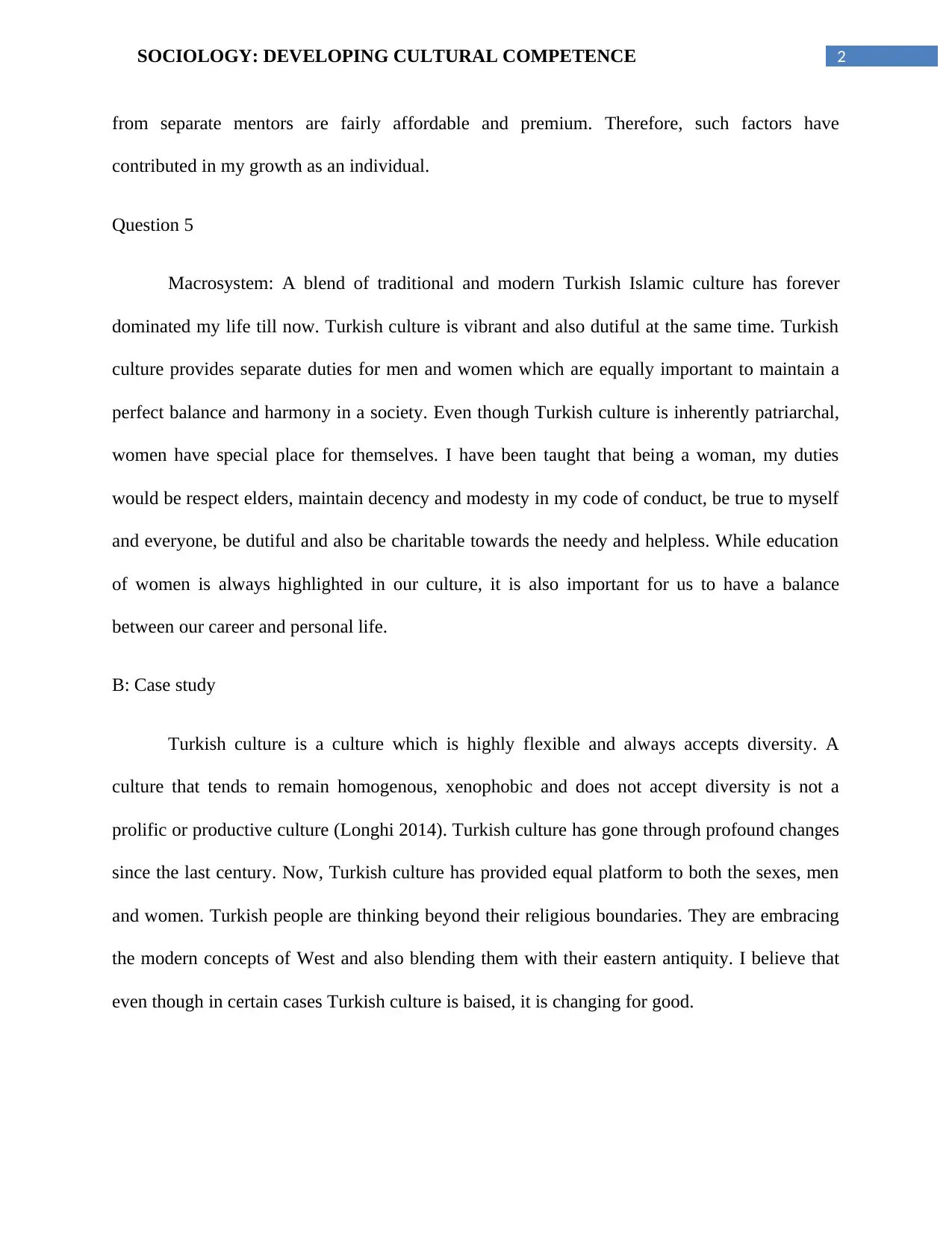

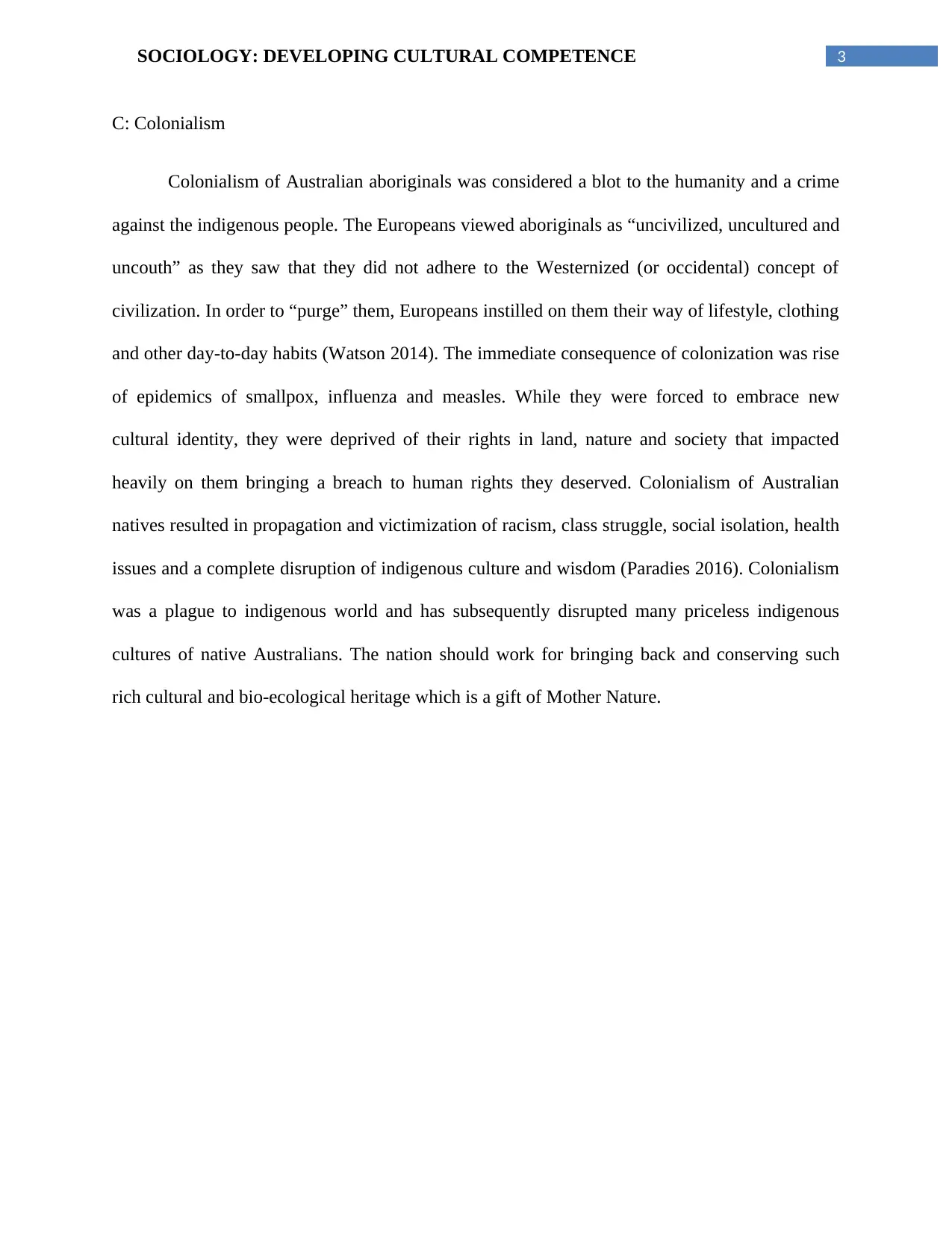
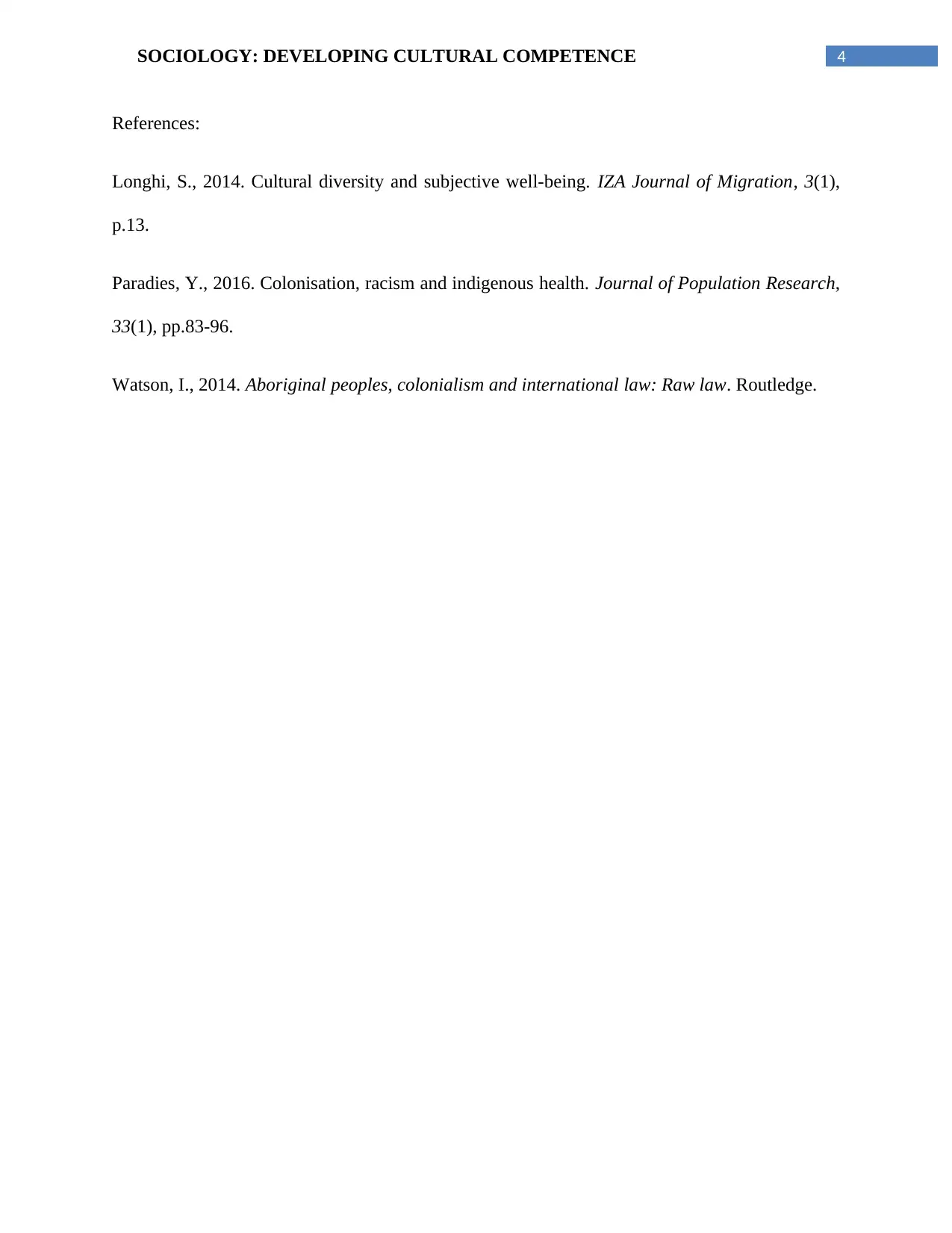
![[object Object]](/_next/static/media/star-bottom.7253800d.svg)